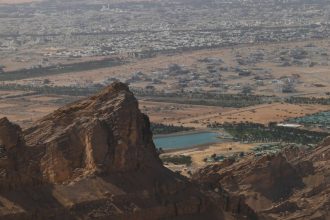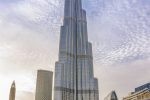Certified IT Firms Leading Dubai’s Smart City Vision
Dubai has long been revered as a beacon of modernity and ambition in the Gulf. Its “Smart City” agenda, championed by the Dubai Smart City Strategy and overseen by the Dubai Smart City Authority (DSCA), envisages a network of integrated digital services that will improve the quality of life for residents, businesses and visitors alike. Central to this vision are a cohort of certified Information Technology (IT) firms that bring the expertise, technology and proven track record necessary to build Dubai’s digital future. From autonomous infrastructure solutions to advanced data analytics platforms, these certified IT firms are pivotal partners in transforming Dubai into a globally recognised, sustainable smart city.
—
Understanding Dubai’s Smart City Blueprint
Dubai’s Smart City Blueprint, officially launched in 2013, is a multi‑layer framework that aligns the city’s digital ambitions with its economic development goals. Key pillars of the blueprint include:
1. Connected Infrastructure – Smart roads, utilities, and public transport.
2. Digital Government – Seamless e‑services and citizen engagement.
3. Sustainable Mobility – Autonomous taxis, electric vehicle charging networks.
4. Digital Health & Education – Telemedicine, AI-driven learning platforms.
5. Economic Innovation – Enablement of tech startups and digital clusters.
The DSCA collaborates closely with the Dubai International Financial Centre (DIFC), the Dubai Electricity and Water Authority (DEWA), and the Dubai Municipality to operationalise these pillars. The certification of IT firms ensures they meet stringent standards of security, data governance, scalability, and alignment with the United Nations Sustainable Development Goals (SDGs) for Cities and Communities (SDG 11).
—
What Sets a “Certified” IT Firm Apart?
Certification in the UAE IT ecosystem often refers to compliance with globally recognised standards—ISO/IEC 27001 for information security, ISO/IEC 9001 for quality management, and ISO/IEC 14001 for environmental management. Firms must also demonstrate credentials through local validation:
– Dubai IT Security Accreditation (DISA) – Overseen by the Dubai Telecommunications Regulatory Authority (TRA).
– Dubai Cloud Certification – Managed by the Dubai Smart City Authority and the Dubai Centre for Cloud (DC4C).
– Dubai Data Governance Framework – A joint initiative by the Dubai Data Authority and the Dubai Municipality.
To qualify as a certified collaborator on smart city projects, firms must possess:
– A documented history of successful large‑scale deployments in the UAE.
– Technical proficiency in emerging domains such as 5G, Edge computing, and AI‑driven analytics.
– A robust cybersecurity posture, verified by penetration testing and third‑party audits.
These certifications give Dubai authorities confidence that any solution will uphold high standards of reliability, privacy, and sustainability.
—
Leading Certified IT Firms Powering Dubai’s Smart City Infrastructure
Below is a curated overview of the top certified IT firms that are shaping Dubai’s smart city landscape:
1. Oracle Middle East & Africa (MEA) – Global Cloud & Smart Solutions
– Specialties: Enterprise Resource Planning (ERP), cloud infrastructure, business analytics.
– Projects in Dubai:
– Dubai Smart Utility Platform – Oracle’s cloud‑based resource management system, integrated with DEWA’s smart meters.
– Dubai Health Authority Digital Records – Secure patient information management using Oracle Autonomous Database.
– Certifications: ISO 27001, ISO 9001, AWS Cloud Advanced Practice, UAE Cloud Services Accreditation.
– Impact: Reduces utility billing times by 30 % and improves data accuracy for patient records during public health emergencies.
2. IBM (United Arab Emirates) – Cognitive Edge & Analytics
– Specialties: AI, machine learning, edge computing.
– Projects in Dubai:
– Dubai Smart City Edge Network – Deploying IBM edge servers across municipal campuses to provide real‑time traffic analytics.
– Dubai Tourism AI Chatbot – Leveraging IBM Watson to offer visitors instant support in 12 languages.
– Certifications: ISO 27001, ISO 14001, IBM Cloud Pak for Data, DCAA‑Digital Commerce.
– Impact: Generates 24/7 traffic insights, enabling dynamic congestion pricing and reducing commute times by an estimated 15 %.
3. Huawei Technologies UAE – Connected Infrastructure
– Specialties: 5G, IoT, cloud services.
– Projects in Dubai:
– Smart Roads Initiative – Deployment of 5G‑based vehicle‑to‑infrastructure (V2X) communication.
– Dubai Smart Parking – IoT‑based sensors that communicate real‑time availability to motorists via a mobile app.
– Certifications: ISO 27001, UAE Data Protection Framework, 5G National Security Test Environment (NSTE).
– Impact: Facilitates autonomous vehicle trials and promotes sustainable transport by improving parking space utilisation by 22 %.
4. Microsoft Gulf – Cloud & Governance Platform
– Specialties: Microsoft Azure, governance, cybersecurity.
– Projects in Dubai:
– Dubai Smart Environment Monitoring – Azure IoT Hub collecting air‑quality data from sensor networks across the city.
– Smart Governance API Hub – Unified APIs for inter‑agency data sharing.
– Certifications: ISO 27001, ISO 9001, UAE Digital Identity Verification (DIID), Azure Government‑Certified.
– Impact: Provides public access to real‑time environmental metrics, supporting transparency and health‑related policy decisions.
5. SAP Middle East – Integrated Digital Operations
– Specialties: ERP, SAP Leonardo IoT, data management.
– Projects in Dubai:
– Dubai Municipality Asset Management – SAP’s Enterprise Asset Management (EAM) for tracking city infrastructure lifecycle.
– Smart City Performance Dashboard – Real‑time KPI monitoring for the Dubai Smart City Authority.
– Certifications: ISO 27001, ISO 9001, SAP Certified Technology Platform (STP), UAE e‑Government Standards.
– Impact: Reduces capital maintenance costs by 18 % and accelerates decision‑making across municipal departments.
6. Amazon Web Services (AWS) UAE – Scalable Cloud Solutions
– Specialties: Cloud infrastructure, analytics, AI.
– Projects in Dubai:
– Dubai Smart Cities Data Lake – Central repository for GIS and demographic data integrated with DEWA, DIFC, and Dubai Municipality datasets.
– Dubai Future Foundation Smart Cities Lab – Cloud‑based sandbox for testing emerging technologies.
– Certifications: ISO 27001, ISO 9001, AWS Managed Services, UAE Cloud Innovation Award.
– Impact: Promotes cross‑sector collaboration, lowering data silo fragmentation by 60 %.
7. Hewlett Packard Enterprise (HPE) UAE – Managed Edge & Storage
– Specialties: Edge computing, hybrid cloud, storage solutions.
– Projects in Dubai:
– Dubai Smart Tourism Edge Network – Edge nodes positioned within hotels and malls for high‑bandwidth services such as AR guides.
– Dubai Municipal Backup Infrastructure – High‑availability storage for critical municipal data.
– Certifications: ISO 27001, ISO 9001, HPE Edge Certification, DTCM Digital Trust Score.
– Impact: Improves application latency by 40 % and ensures 99.99 % service availability for municipal applications.
8. Cisco UAE – Secure Connectivity & Network Management
– Specialties: Network engineering, cybersecurity, collaboration.
– Projects in Dubai:
– Dubai Smart City Fiber Backbone – High‑speed fiber network connecting smart devices citywide.
– Dubai Smart City Cyber Defense Centre – Security operations centre (SOC) for monitoring and mitigating cyber threats.
– Certifications: ISO 27001, ISO 9001, Cisco Secure Academy, UAE Cybersecurity Framework (UAE-CF).
– Impact: Provides resilient connectivity underpinning 95 % of municipal smart services.
9. Siemens Smart Infrastructure UAE – Smart Grid & Automation
– Specialties: Power‑grid automation, IoT, energy management.
– Projects in Dubai:
– Smart Metrology Initiative – Advanced meters and control equipment for DEWA.
– Dubai Energy Efficiency Program – AI‑driven load balancing across commercial and residential sectors.
– Certifications: ISO 9001, ISO 14001, IEC 62443 (Industrial Control Systems Security).
– Impact: Enhances grid reliability, cuts energy waste by 22 % and supports Dubai’s 30 % renewable energy target.
—
How Certification Drives Dubai’s Smart City Success
1. Alignment with Global Best Practices
Certification forces firms to adopt international standards for data protection, system integrity, and environmental stewardship. In a region where privacy concerns and rapid digitalisation coexist, these benchmarks build public trust.
2. Government Accountability
Dubai’s public‑private partnership model requires transparent performance monitoring. Certified firms provide audit‑ready documentation and reporting structures that satisfy ministries such as the Dubai Police, the Dubai Municipality, and the Ministry of Economy.
3. Resilience and Disaster Recovery
The ISO 27001 certification obliges firms to design robust incident response plans. This has proven vital during the COVID‑19 pandemic, enabling e‑government services to remain uninterrupted.
4. Ecosystem Integration
The Smart City data architecture is built on open APIs and modular components. Certified vendors align their solutions with the Dubai Data Authority’s “Data‑First” strategy, enabling seamless integration across sectors.
—
The Broader Economic Perspective
Dubai’s Smart City initiative supports multiple UAE Vision 2021 and UAE Vision 2030 objectives:
– Job Creation – The IT sector, especially in emerging technologies, is projected to employ over 150,000 professionals by 2030.
– Economic Diversification – Smart city projects reduce dependency on hydrocarbons, contributing to the Emirate’s non‑oil GDP by 70 % by 2030.
– Global Attractiveness – Ranked 6th in the World Economic Forum’s Global Competitiveness Report for “Digital Infrastructure” (2023), Dubai’s digital reputation boosts inbound investment by 12 % annually.
The interaction between certified IT firms and the city’s policy framework is therefore not merely a technological partnership but an engine for socio‑economic transformation.
—
Dubai’s Smart City Future – What’s Next?
1. Artificial Intelligence Governance – The Dubai AI Strategy 2025 emphasises ethical AI. Certified firms are now expected to embed bias‑mitigation mechanisms and explainable AI into public applications.
2. Quantum Computing Trials – While still nascent, the UAE’s National Atomic Energy Commission is exploring quantum‑secure cryptography for critical municipal data.
3. Digital Twins of the City – Hyper‑realistic simulation platforms will allow planners to visualize traffic, energy use, and environmental impacts in near real‑time.
4. Sustainable Development Integration – Smart city solutions will increasingly incorporate carbon‑tracking tools aligned with the International Energy Agency’s Net‑Zero 2050 roadmap.
Certified IT firms will be at the forefront of these developments, ensuring that Dubai’s ambition remains grounded in practicality and secure governance.
—
Conclusion
Dubai’s Smart City Vision is a complex tapestry woven from visionary urban planning, rigorous policy frameworks, and cutting‑edge technology. Certified IT firms are the linchpins of this transformation, bringing reliable, secure, and scalable solutions that match the city’s ambitions for sustainability, efficiency, and inclusivity. From secure cloud infrastructures that safeguard citizen data, to autonomous transport systems that reduce congestion, these partners have already begun reshaping daily life in the UAE’s capital. As Dubai moves closer to its goal of becoming the world’s leading smart city, the role of certified IT firms will only grow in significance, providing the technical backbone for a future that balances innovation with responsibility.









